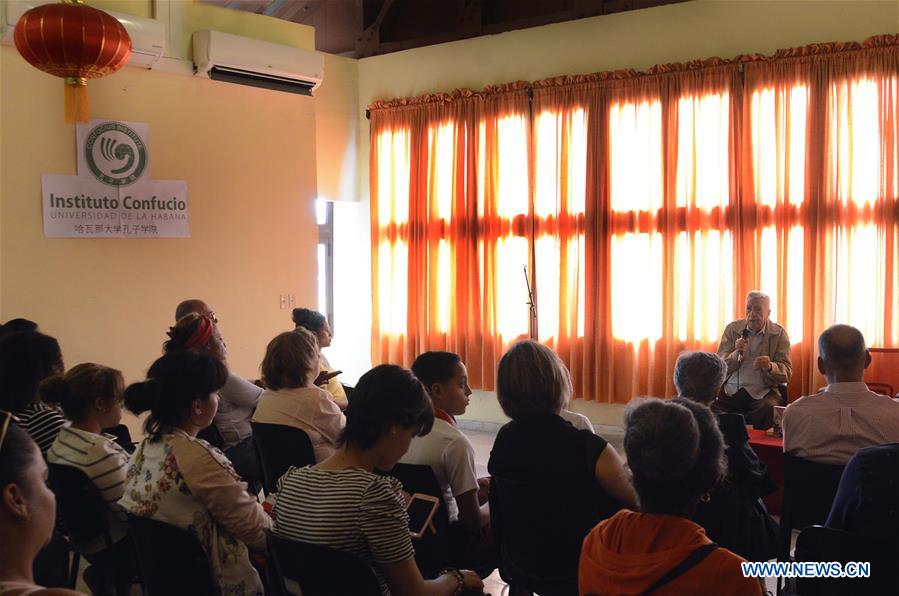
Rolando Lopez, a political counselor of Cuba's embassy in China in 1974-1978 and ambassador in Beijing in the 1980s, introduces his book "100 questions about China" at the Confucius Institute of the University of Havana in Havana, Cuba, March 20, 2019. "I felt that obligation because of the historical links with China," he said, and for that reason he wrote a book "100 questions about China" to encourage Cuban readers to learn more about the Asian country, including its peculiarities, history and traditions. (Xinhua/Joaquin Hernandez)
by Raimundo Urrechaga
HAVANA, March 22 (Xinhua) -- "I have always felt a debt to the country that has made an enormous contribution to the development of humanity," said Rolando Lopez, a political counselor of Cuba's embassy in China in 1974-1978 and ambassador in Beijing in the 1980s.
"I felt that obligation because of the historical links with China," he said, and for that reason he wrote a book "100 questions about China" to encourage Cuban readers to learn more about the Asian country, including its peculiarities, history and traditions.
The 187-page book was presented on Wednesday at Havana's Confucius Institute, where Lopez shared with students and professors his personal anecdotes in the Asian country.
Written in 2014, "100 questions about China" was part of a collection called "100 Questions," an idea which emerged from the Cuban publishing house, Gente Nueva, based on the needs of children and teenagers on the island to learn about countries around the world.
However, Lopez's health problems and logistical issues delayed its printout until this year, when it was first published in the 28th edition of Havana's International Book Fair on Feb. 7-17.
"Choosing only 100 questions about China was very difficult because one would like to say so many things. What I tried was to give a general idea of the country, (such as) its geography ... literature, science, traditions, cuisine, martial arts, horoscopes, etc," he said.
Although Lopez is eighty-two years old, he boasts an extraordinarily good memory. The names, dates, places or circumstances he encountered in China never escaped his descriptions.
In 1959, Lopez visited Beijing for the first time on the tenth anniversary of the founding of the People's Republic of China. In September 1960, late Cuban leader Fidel Castro announced the establishment of diplomatic relations with China at Havana's Revolution Square.
Moments, which are remembered amongst his most cherished memories, became Lopez's personal commitment to provide an instructive, entertaining, and curious approach to Cubans about China's millenary civilization.



